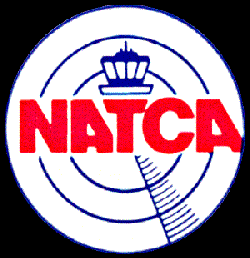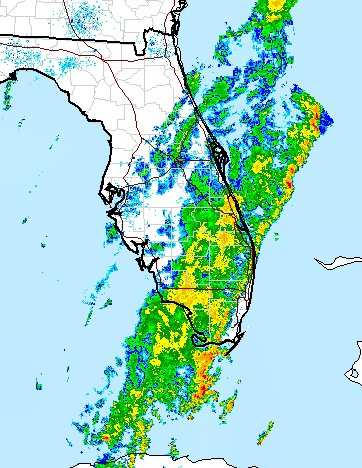Says Towers Not Evacuated Because Controllers Unaware Of
Approaching Tornado
 The National Air Traffic
Controllers Association (NATCA) is on the offensive again over work
rules -- this time it's radios in the work place.
The National Air Traffic
Controllers Association (NATCA) is on the offensive again over work
rules -- this time it's radios in the work place.
In a release, the union claims the FAA’s September
decision to ban weather radios, commercial radios and cell phones
from its air traffic control facilities placed air traffic
controllers in danger. It says the six personnel in the control
tower cab and radar room at Daytona Beach International Airport
didn't evacuate when a tornado came within 150 yards of the
facility during a Christmas storm because they had no warning.
NATCA says this is the third such incident in three months.
According to the release, FAA officials recently briefed Daytona
Beach controllers on a security order detailing procedures during
hazardous weather conditions including: "Keep a watch on the skies
and watch/listen to local weather."
NATCA says the FAA was negligent by banning all methods of
monitoring local weather conditions as its own order requires.
"This is a situation that defies all measure of common sense and
responsibility," said NATCA Executive Vice President Paul Rinaldi.
"The FAA removed the radios as part of its imposed work rules in an
effort to punish controllers. But it’s turning out to be a
fateful decision that has serious, life or death consequences that
clearly the agency foolishly overlooked. We call upon the FAA to
immediately put back all radios and life-saving communications
equipment."
NATCA's release says two controllers remained in the tower cab
unable to see the approaching tornado because of heavy rain.
It also alleges because the tower controllers weren't aware of
the approaching tornado, they didn't warn the pilots of a Comair
regional jet they were vectoring to the airport. Purportedly, the
tower controllers were handling the approaching aircraft because
the storm took out power to the approach control facility.
NATCA says the tower controllers vectored the jet to approach
behind the front passing over the airport which also took it around
the tornado.
"Without access to critical severe weather information, the FAA
is not only showing a blatant disregard for its employees but also
for the flying public," said Kelly Raulerson, NATCA’s Daytona
Beach facility representative. "Before this ban went into effect,
we used to hear frequent tests of the Emergency Broadcast System on
the radio in the tower that we kept on. We certainly needed to hear
that familiar alert on Monday. Instead, we were cut off from the
world and left in a very vulnerable position."

NATCA claims tornadoes also threatened both DuPage Air Traffic
Control Tower in Illinois and Lincoln Air Traffic Control Tower in
Nebraska back in September after the new FAA work rules went into
effect. According to the release, a tornado came within two miles
of the DuPage tower, but controllers never saw it because of heavy
rain.
Allegedly, controllers notified the FAA supervisor on duty the
next day saying a radio in the tower would have provided an
alert.
NATCA says the supervisor replied, "You should have looked out
the window."
 ANN's Daily Aero-Linx (04.30.25)
ANN's Daily Aero-Linx (04.30.25) ANN FAQ: Turn On Post Notifications
ANN FAQ: Turn On Post Notifications Classic Aero-TV: Agile Aeros Jeff Greason--Disruptive Aerospace Innovations
Classic Aero-TV: Agile Aeros Jeff Greason--Disruptive Aerospace Innovations Aero-News: Quote of the Day (04.30.25)
Aero-News: Quote of the Day (04.30.25) ANN's Daily Aero-Term (04.30.25): Expedite
ANN's Daily Aero-Term (04.30.25): Expedite




